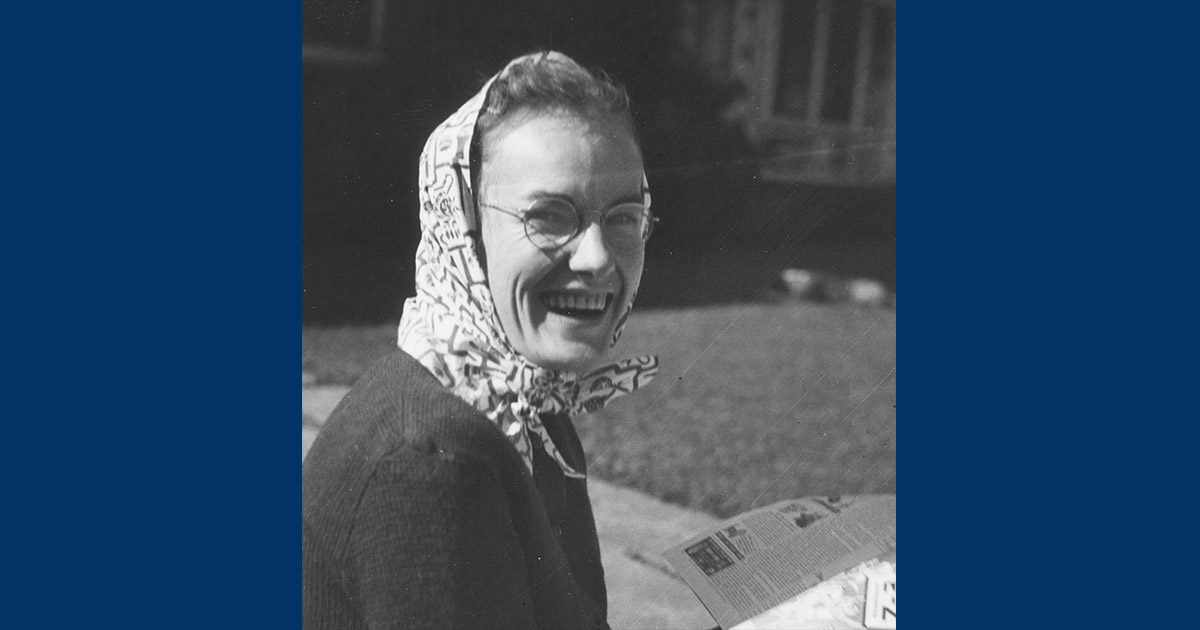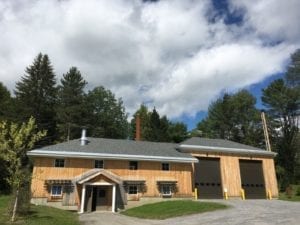Maya Angelou once said, “There is no greater agony than bearing an untold story inside you.”
The stories that live in silence very often have the greatest power to transform our world and our understanding of it, when we are given an opportunity to share them and to listen to them.
Each of our lives is made up of multiple layers of stories – stories we share, stories we hide, stories we don’t even know we carry with us. If you truly want to know something, you need to start by understanding what your experience has been, the stories you know and those that remain locked in the silence of unexamined experience.
That’s precisely what the Goddard model of learning invites us to do.
Students have always come to Goddard to learn and understand the stories that live inside of them, the stories that have shaped them.
In celebration of our 150th anniversary and to ensure a sustainable future, we are inviting and speaking a full narrative, one that values the arc of our history, the peaks and valleys, and honors ALL those who have participated, so that we fully understand Goddard’s story.
We are asking these questions:
· What is the story that lives here in the bones of Goddard College?
· Is the story we tell incomplete, is it based only on fragments of our history?
· Are there parts of it that live here in a kind of sacred silence?
· Whose stories are honored?
· Whose stories are forgotten?
· Are there aspects of our core purpose that remain hidden, even to us?
We welcome this reflection on our past so that it may more deeply inform our future as an institution and a community.
Today, I am here to tell you one of our stories that has lived in silence. About someone whose life maps itself to the very core purpose of this college.
Evalyn Cora Bates was born in Williamstown, Vermont in 1916 to Vermont subsistence farmers, was the middle-born of five children, and grew up on a farm which is now the site of the East Hill Theater in East Calais, Vermont.
In the Spanish flu pandemic of 1918, her family was devastated by the loss of their eldest child, a son, followed two years later by the loss of their second son to spinal meningitis. The three remaining children—all girls—helped with the farm work, but were never expected to take over the family farm as were the male children.
Evalyn was identified early on by her teachers as exceptional, graduated a year early from East Calais Elementary School and attended the Montpelier Seminary as a boarding student, with her tuition paid by produce and milk from the family farm, graduating in 1933.
In 1936, she graduated from Goddard Junior College, which Goddard’s founding president Royce “Tim” Pitkin ran as a division of Goddard Seminary in Barre. While there, she worked as secretary to Pitkin.
In 1938, against the backdrop of profoundly troubling attacks on democracy in Europe, Tim Pitkin described the challenges facing the nation, the world and our educational system when he said, “We are in need of a more intelligent thinking citizenry. What are we going to do about it?” As we now know, Goddard College was his answer.
And later that year, Goddard became a four-year college, founded right here, on the soil of the former Greatwood Farm – one of Plainfield’s largest farms in the 19th century – soil that has been the ground of so many experiments in living and learning. And it was here that Evalyn Bates joined a small group of people who directed their vision, creativity and energy toward getting that new four year college enterprise off the ground.
In 1943, Evalyn became one of the first two graduates of Goddard College.
I wonder, sometimes, what that experience was like for her as a woman, graduating from a four-year college during wartime, at a time when the roles of American women shifted briefly but radically, and dramatically…to become central figures in the maintenance and functioning of our national economy. Line operators, decision-makers, mechanics, laborers, healers, nurturers. Their work ultimately changed the landscape around which American women defined themselves decades later. I wonder how her education at this moment in American history informed the questions driving her academic work.
Like all Goddard students, she was challenged to answer fundamental questions about her life and her experience. Her response had a resounding effect–upon Goddard as we know it today, upon American education itself and upon your life and my own. Evalyn envisioned the model of Adult learning, The Adult Degree Program/the IBA that we celebrate today in our graduate’s accomplishments. I’d like to ask today’s graduates to stand and let’s give a hand together in congratulations of this important milestone in their lives, and the legacy that Evalyn left here at Goddard.
Given the current crisis in American education and the challenges we face as a nation, Goddard brings a perspective on education that is needed, now more than ever. We hear it all the time: Our system of education is broken.
As a nation, we have become more concerned with teaching than we are with learning. We teach to the test and celebrate learning the right answers rather creating learning environments in which people figure out how to ask good questions. We continue to revere canons of what to know instead of paying attention to how people actually learn.
Years ago, Evalyn Bates came to understand what is wrong with this model. And it was her understanding that defined a new learning model, one that changed the landscape of American education. She created a place – HERE – where people come to be uprooted and transformed, not simply educated, a space and a place that invites people to grow and learn in partnership with the local communities in which they live and work.
She is the reason we are standing here today, and her story defines the Goddard story in its fullness.
During his 1943 Commencement speech Tim Pitkin said that Evalyn’s senior study on adult education took her “into the community and resulted in a removal of the barriers that ordinarily separate the school from real life. In a very real sense the social environment has been her laboratory, and she has set a standard for achievement that is worthy of emulation by the long line of students that we hope will succeed her.”
And in the arc of Evalyn’s story, her 1957 graduate thesis was the first clear articulation of a low-residency, adult education program. In 1963 the nation’s first Adult Degree Program was founded here at Goddard as a result of both her vision and- no less importantly – a model of learning that was relevant to her own experience, a model that asked her – as it does of all Goddard students – what it was that she most wanted to know – a model that has since been adopted by higher education institutions nationwide.
In Evalyn’s own words, “Goddard was one of the few places that took seriously the idea that adult college students could make their own minds up about what they wanted to do.”
This is what students have always had the freedom to do at Goddard.
And so this day is about celebrating you, today’s graduates of Goddard College, and in celebrating you we honor the vision and scholarship of Evalyn Bates, and the indelible mark she left that defines us as a life-long learning college and community.
However, this day is also about righting a wrong, about telling a woman’s story that is long overdue, a story that has endured in silence. It is about naming the ghost in the machine of an institution – that like all others sometimes fails to remember, because memory lives among the living and narratives cannot be spoken by an institutional archive.
Evalyn’s work endures and remains more educationally relevant today than ever before.
Therefore it is my honor to invite Nancy Walton, Evalyn’s niece, and Bill Kaufmann, Evalyn’s colleague and Chair of the Board of Scandinavian Seminar, to join me at the podium.
By the authority of the Board of Trustees of Goddard College, I am delighted and it is a privilege to confer upon Evalyn Bates, posthumously, the degree of Doctorate of Humane Letters, honoris causa. The diploma is a visible symbol of Evalyn Bates’s membership in this society of scholars, entitling Evalyn Bates to all its rights and privileges.
This speech was delivered by Dr. Barbara Vacarr, president of Goddard College 2010-2014





